Imagine you’re sitting on your couch, watching some true crime while eating dinner. There’s a bloodbath on your screen, and suddenly, you spot a trail of blood on your clean floor. At the end of the trail sits your fluffy bunny, looking up at you with doe eyes.
No, your bun-bun is not a vicious murderer. Perhaps you should tone down the true crime a bit. However, you might also be wondering if this is her first period.
Do rabbits have periods? And if they do, is it only specific bunny breeds that have menstrual cycles?
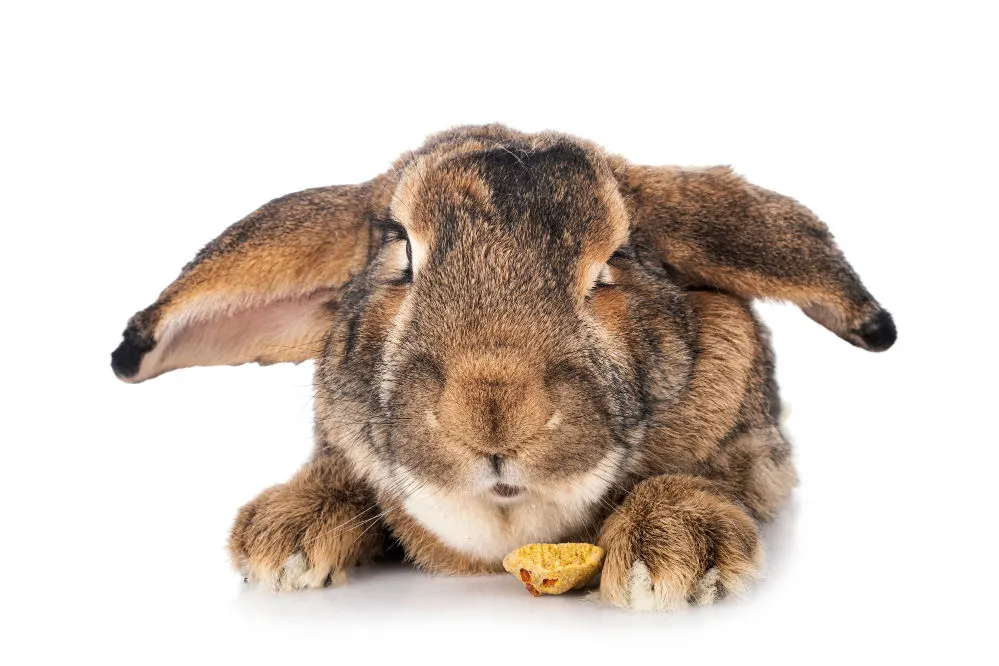
In this post, we will go on a quest to find the source of your fluffy friend’s bleeding and determine once and for all if you suddenly have a grown-up girl on your hands who is ready to mate. So let’s dive into the nitty gritty of rabbit cycles.
Do rabbits get periods?
So let’s get the main question out of the way. Can rabbits have periods? No, bunnies do not get monthly menstrual cycles as we humans do. Instead, they are induced ovulators. When a suitable mate is around your bun-bun, she’ll immediately release an egg before mating.
But they don’t bleed during this time. This means if your fluffer is creating a crime scene in your house, there’s probably a different reason. There shouldn’t be any bleeding coming from her reproductive organs.
However, before we dive into why your bunny is bleeding, let’s learn about the reproductive system of rabbits to get to know our fluffy friends better.
Induced ovulation
We’ve mentioned that your bunny is an induced ovulator and releases an egg before mating. But how does that work?
Unspayed female rabbits respond to a specific external stimulus to release this egg. This is usually when a suitable male buck is in close proximity or already mounting them. This is known as being in ‘heat.’ However, it’s not like when female dogs go into heat during a specific time of year. rabbits, don’t have a specific estrous cycle, meaning breeding season is all year around for rabbits!
In fact, rabbits can get pregnant at any time of the year. Even when they’ve just given birth, bunnies have been known to conceive again just 24 hours later. There’s a reason bunnies multiply like nobody’s business. It’s because every day is mating season.
However, no blood should be around your bunny when she releases an egg. They don’t have menstrual cycles, meaning if you see blood around her, something else is happening.
Puberty in bunnies
Rabbits do go through a period of puberty, though, just like us humans. Female rabbits mature at quite an early age and can begin reproducing as early as four to six months of age.
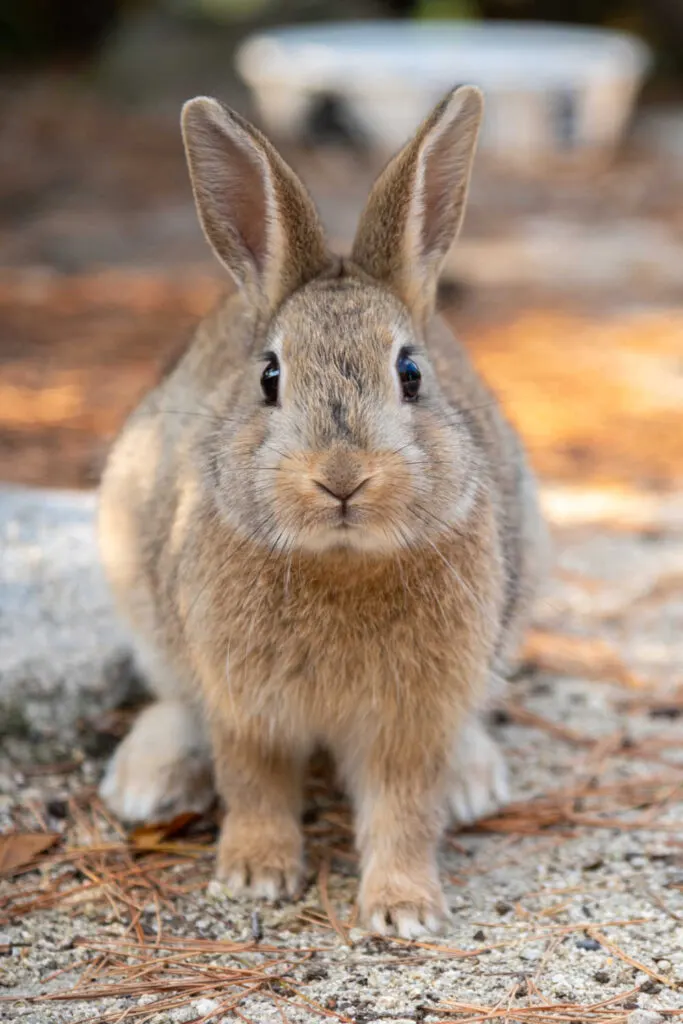
Environmental factors do play a significant role in reproduction, though. Weather can actually influence your bunny’s reproductive period. Rabbits do not do well in high temperatures because their coats don’t allow them to radiate body heat. This means it gets trapped in their coats, and they can suffer from heat stress.
Nobody wants to get it on when the heat is too high, not even your bun-bun.
Signs and symptoms your rabbit’s in heat
There are a few signs to look for if you’re unsure if your bunny has reached sexual maturity. Their reproductive organs turn dark in color. So if you flip your bunny around (carefully), you can see her genital area and reproductive organs and ascertain whether they’re darker compared to the rest of her body.
Another sign is aggression. Basically, rabbits experience female rage (don’t we all). If your bunny’s mood has changed recently and she seems more hostile or angry, then she might want a mate.
There can also be changes in behavior. If your bun-bun is litter trained or knows exactly where to go to urinate, and suddenly she’s leaving urine stains all over the house, this could be a sign that she wants to reproduce. She’s marking her territory.
They can also start riding things to get sexual stimulation from it. So if your bunny is humping your favorite teddy bear, it might be time to get her a mate or take her for sterilization.
All about pregnancy
The gestation period in rabbits lasts about 30 days (31 to 33 days). They will usually give birth to between one and five baby bunnies at the end of this. Your bunny will then begin to lactate so she can feed her babies some nutritious rabbit milk.
As mentioned before, she is ready to become pregnant again, pretty much right after giving birth. Have you ever heard the saying, ‘They’re breeding like rabbits?’ This is where it comes from.
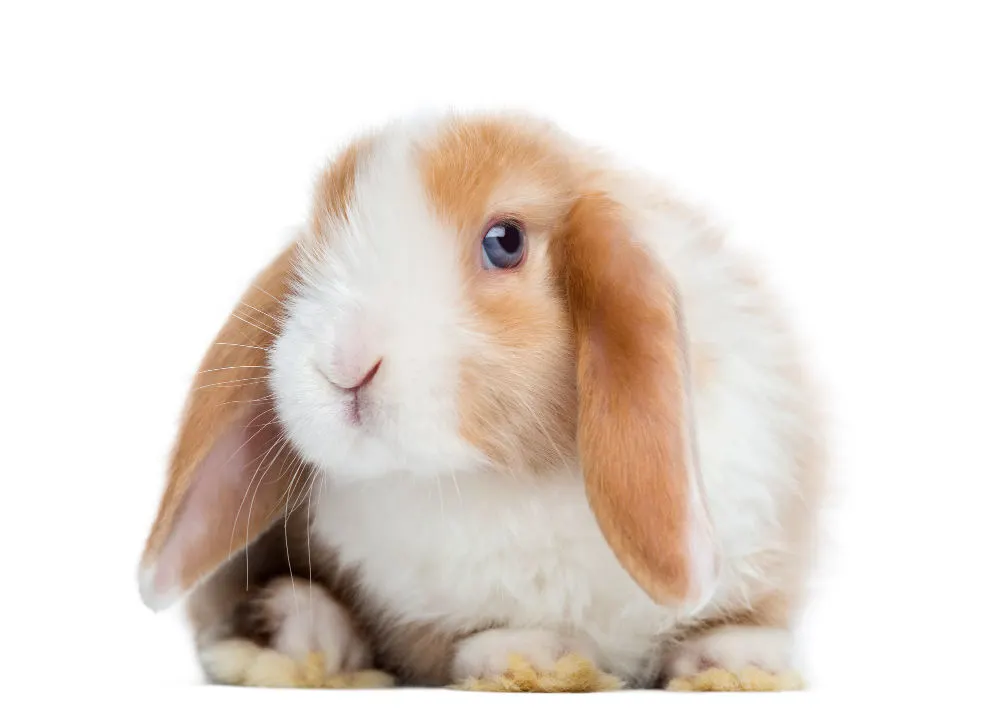
So if you own male and female pet rabbits, you must be careful because they can conceive incredibly easily. Sterilization is an option if you don’t want to be up to your eyeballs in baby rabbits. Or at least just keep them apart.
When can you spay a rabbit?
Spaying is major surgery. It involves removing your bunny’s uterus and ovaries to render her infertile and unable to make babies, so it’s a big decision to make. However, if rabbit owners don’t want their rabbit population to grow, then it’s definitely something to look into.
As soon as your bunny reaches sexual maturity, she can be spayed. This is generally around four months. However, you can use the signs mentioned above to be sure. Many vets also prefer to wait until around six months of age because the operation gets riskier the younger a bunny is.
However, it also gets riskier once they’re older than nine months, as the amount of fat surrounding the uterus and its blood supply can get in the way of a proper spay. So the sweet spot is typically between four and eight months.
If your rabbit is over two years old, a thorough health check and blood tests will need to be done to determine the risk of surgery. And most vets won’t spay a rabbit over the age of six due to the risk of anesthetics. So don’t wait too long to fix your little friend.
Causes of bleeding in bunnies
So if your bun-bun is bleeding, and that’s why you’re here, it’s safe to assume she’s not having a period. However, it could be something more sinister. Unless you have a killer rabbit on your hands, the bleeding can be anything from a cut to an infection.
If your fluffy girl will allow you, inspect the area and see where the blood is coming from. They are very sensitive animals and usually don’t show signs of discomfort or pain. However, she might not let you pick her up if she is in pain.
The best advice is that if your bun-bun is bleeding, take her to the vet to get her checked out. However, if you want to know more about the causes of bleeding in rabbits, let’s get into it.
Red urine
Red urine in bunnies is a common problem and does not usually indicate a medical emergency. The Biology of Medicine of Rabbits and Rodents by Harkness and Wagner states is a good read. (this sentence isn’t clear) They say many cases of bloody urine turn out to be either porphyrin-pigmented basic urine or a sanguinous vaginal discharge associated with uterine adenocarcinoma, polyps, or abortion.
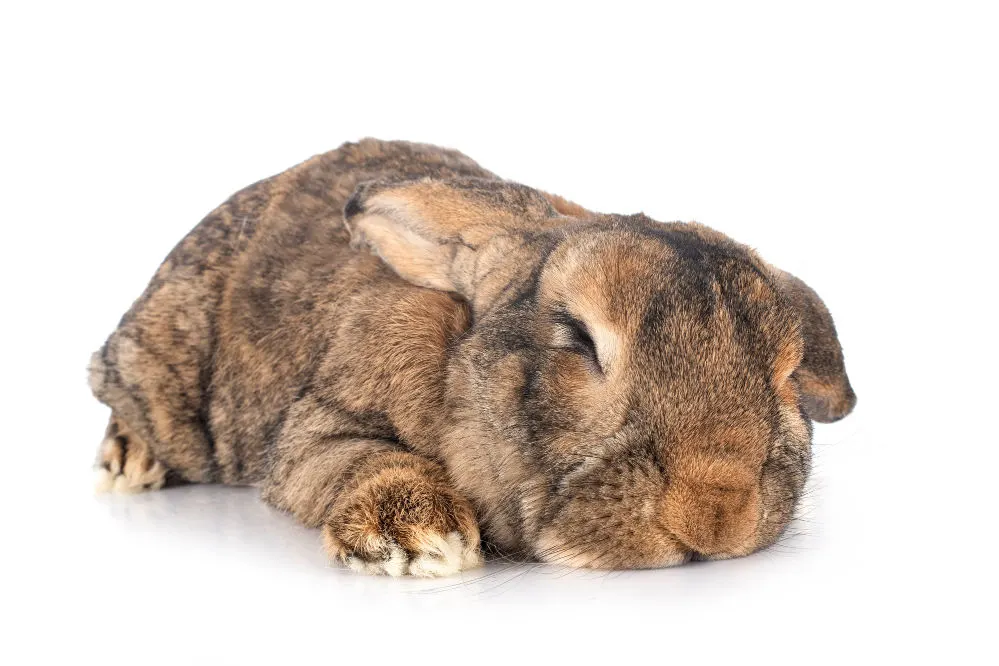
In layperson’s terms, that means either something is causing the pigment in your rabbit’s wee to discolor, or it’s vaginal discharge from uterine cancer, polyps, infection, or even natural abortion or miscarriage.
So, for the most part, red rabbit urine does not have blood in it. If it’s a pigment problem, your bunny’s urine will return to its normal color within a few days.
The most common causes of red urine include:
- Changes in season
- Eating Fir leaves, spinach, or veggies like carrots that are high in beta carotene
- Antibiotics
- Stress
- Changes in temperature
- Changes in your rabbit’s diet
If your bunny constantly has red urine, it’s time to investigate. If a vet has decided she’s all good and has no health problems, look at her environment. Is there another animal, like the neighbor’s dog, that comes around often and scares her?
Does it only happen at certain times of the year or during certain temperatures? Is there a treat that causes the red urine? Checking all of these will have you figuring out the reason for your bun’s red urine in no time.
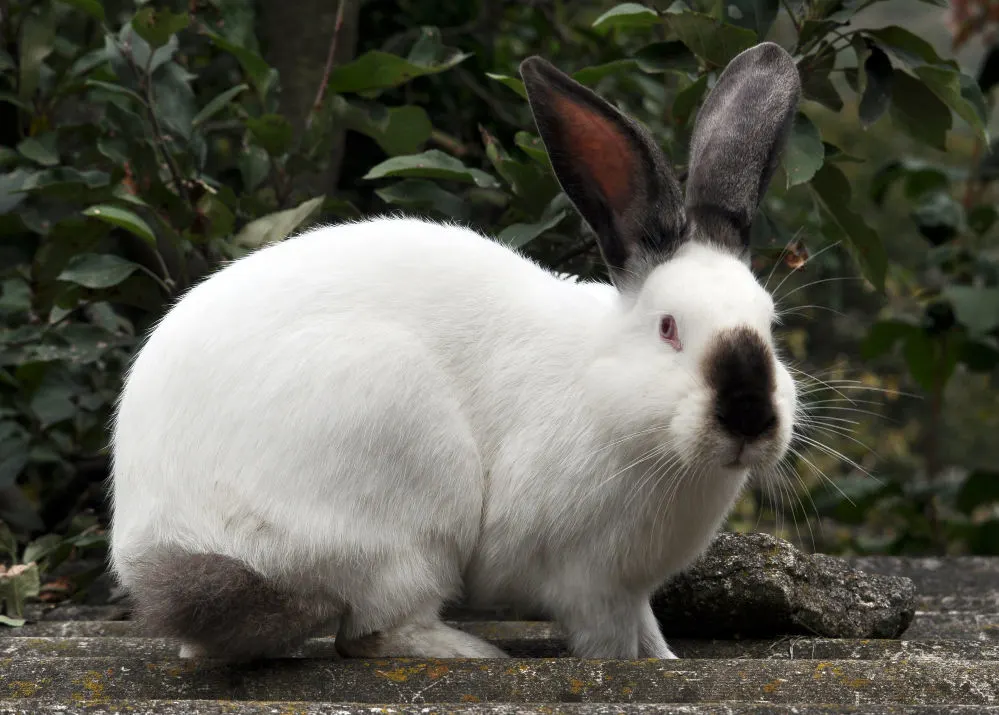
So, for the most part, if you see red urine coming from your bunny baby, then there’s usually no need to worry. Keep an eye on it, and if it becomes worse or thicker, like actual blood, take her to a vet just to be safe. It is pretty hard to tell the difference between pigmented urine and blood in urine with the naked eye, though, so a vet checkup is always a good idea.
Bladder/kidney or urinary tract infection
So if there is blood in your rabbit’s urine, the most common cause is a urinary tract infection or bladder infection. If you suspect blood in your bun-bun’s urine, don’t start stressing. Just take her to the vet to get checked out.
If you notice signs of straining from your bun friend, it might be an obstruction, kidney infection, or kidney disease. This calls for immediate action. Straining can be seen when your bunny is in an awkward or weird position while they try to wee. They can also sit on the back of their feet for long periods with their tail pointed at the sky.
If you notice your bunny is straining, check the litter box and see if she has been able to pass any urine at all. If you can see some, even a few droplets, the issue is not severe yet but could still mean something is wrong with her kidneys. If there’s nothing, an emergency visit to the vet is required.
A urinalysis is usually necessary if your bunny is struggling to pass urine. This can determine if there’s any blood in the urine as well. Sometimes an X-Ray will also be done along with some other tests — anything to keep your fluffy friend healthy.
Since you’re keeping an eye on your bun-bun’s urine, it’s a good idea to check her poop as well. Rabbit poop can be another indicator of an underlying problem.
Uterine cancer
The C-word immediately freaks many people out, but be aware that uterine cancer is rare and usually occurs in older rabbits. However, it’s worth checking out if you notice blood in your bunny’s urine.
The main signs and common symptoms of uterine cancer in rabbits include:
- Bloody discharge from her vagina, whether it’s clear, beige, thick, or blood-tinged.
- Blood in the urine is known as hematuria. It won’t be present every time they wee since it comes from the uterus, and you might see blood clots.
- Mastitis, or mammary gland cysts. You’ll be able to feel the cyst or even see it.
- If your bunny is breeding, she may have smaller litter sizes with an increased number of stillborn babies, or she may become infertile.
- Bunnies with uterine cancer can show behavioral changes, like aggressiveness, biting, scratching. A mother rabbit may even abandon her babies.
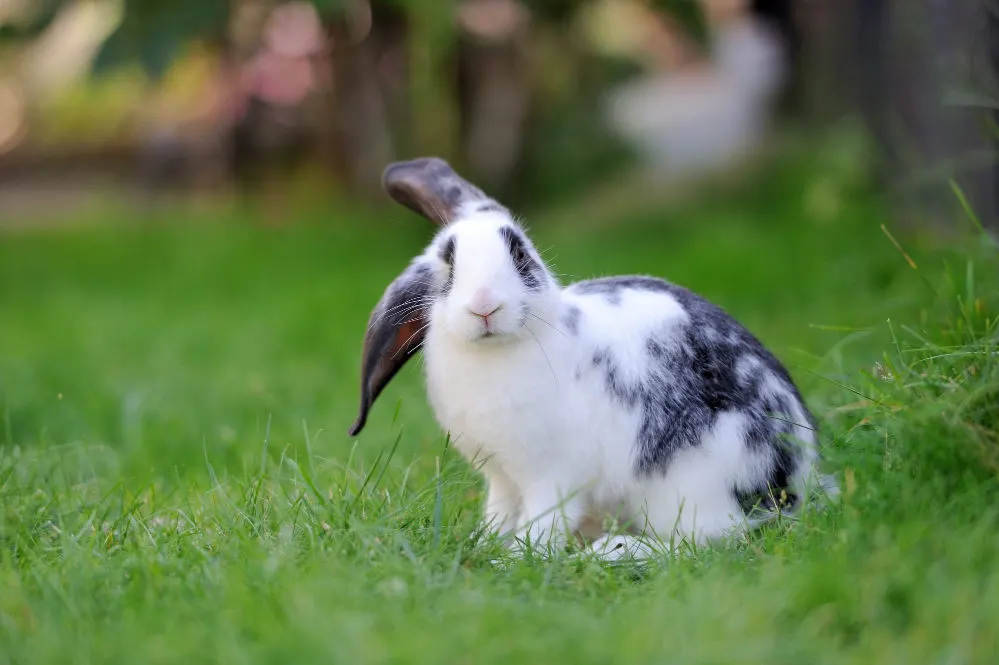
If you notice any of these symptoms, a vet visit is needed. Most of the time, it will be due to something else, but just to be safe, make sure she gets her yearly checkup as well.
Cut or injury
For the most part, if your rabbit leaves blood all over your floor, it’s probably an injury. If you suspect your bunny might have a cut somewhere, thoroughly check her body to see where the bleeding comes from. Once you’ve located the area, check if you can see an open wound or a cut.
Also, take a look at her environment to see if there’s anything sharp she could have hurt herself on. Sharp corners in her little rabbit house can cause injury.
If you find the cut, you’ll need to discern its depth. The depth determines the likelihood of infection. She might also need to get stitches from a vet.
Your bun-bun should be fine if it’s only a tiny wound. Just keep an eye on it to see if it’s healing naturally. You can also contact your vet to ask about the best way to keep it clean.
Final thoughts on if rabbits can have menstrual cycles
So rabbits don’t have a menstrual period. For the most part, bloody urine or bleeding does not indicate a serious issue. But, it is always better to have a vet check your fluffy friend out just to be sure.
And if your rabbit has taken some tips from your true crime shows and decided to become the world’s first serial killer rabbit, then we’d suggest giving her some treats and a toy to move her attention away from murder.
If you’re still looking for the perfect bunny to join your home, then check out our list of the best indoor rabbits so you can find your new friend.
Steph Dyson is a travel journalist by trade but a lover of all small pets. She’s been a pet mum to everything from gerbils to guinea pigs, rabbits to hamsters, and fish to dogs of all shapes and sizes. She wants to share her years of experience with small pets and make Small Pet Guides the go-to website for pet owners seeking information and care advice.

